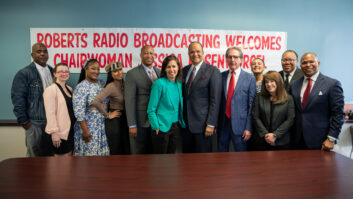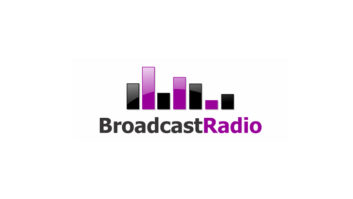The concept of geo-targeting we’ve written about from Geo-Broadcast Solutions now has a test-bed. The idea is that FMs could air different ads based on listener location.
The company’s technology uses a single frequency network made up of FM boosters to “target” the air signal to certain geographic areas. The company says ZoneCasting divides the radio signal for a booster’s “zone” to broadcast selected content — like advertising, emergency information, PSAs and community news — at selected breaks during the day.
Harris and Geo-Broadcast have begun installing the system at WRMF(FM), Palm Beach, Fla. They aim to launch what they say is the first commercial test of the system this fall with an eye towards eventual deployment.
Harris supplies the transmission equipment needed for the GBS ZoneCasting system. There are multiple transmission schemes, including FM analog, all-digital and FM+HD hybrid.
The solution allows FM boosters to originate programming content unique from the main signal using GBS ZoneCasting Systems — and transmit that content to specific areas of a broadcast market using single-frequency networks with multiple Harris transmitters.
Specifically, Harris deploys multiple corresponding Flexiva low-power FM transmitters within the GBS ZoneCasting network architecture, adding Intraplex SynchroCast simulcasting gear for synchronous delivery of localized content across defined zones.
GBS CEO Peter Handy says ZoneCasting enables a station to deliver precise, targeted advertising to many defined zones across a single radio market. He estimates stations can pay for the system within three years based on the new ad revenue it will garner for a facility.
Palm Beach Broadcasting owner Dean Goodman, who owns WRMF, says there are advertisers who have not bought radio spots because they don’t want their ad targeted to the whole market. ZoneCasting could make the localization of advertising to specific neighborhoods sensible and affordable for these companies, said Goodman. “It’s easy to visualize how the advertising success of one neighborhood business would result in competing businesses quickly coming on board.”
Indeed, Handy told the FCC the same thing when he applied to the FCC in April for permission to modify a rule to allow FM boosters to originate programming to accommodate the product. The company has experimental authority from the FCC to test the system and has sent reports to the commission with test results from its first tests in Salt Lake City and Sebring, Fla.
Dyna Wash President Charles Moore, a prospective radio advertising client, told the commission that station consolidation has made radio advertising “prohibitively” expensive in the New York metro. The ZoneCasting concept, Moore wrote, “helps put the fairness back into radio broadcasting and opens up a critical advertising outlet for small businesses which have been effectively closed out of the medium for the better part of 10 years.”
Harris Broadcast VP Product Management and Strategy for Transmission Systems Rich Redmond says the concept isn’t about investing in a new studio or transmitter with the hopes that it will improve ratings or revenue. “This is about helping broadcasters become more competitive against a fractured marketplace.”











